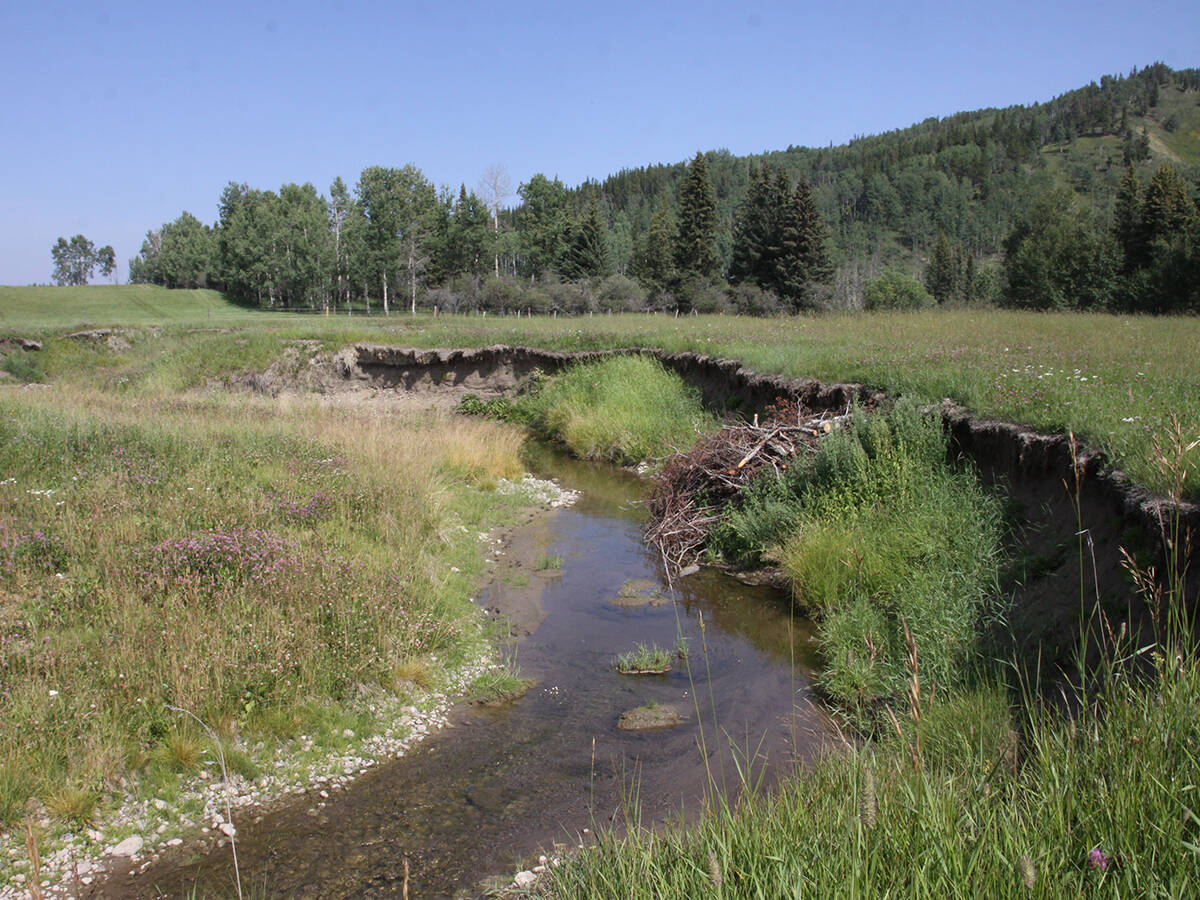The Manitoba law society is seeking a court order to prevent Canadian Farmers for Justice activist Dan Creighton from giving legal advice to farmers charged with selling grain across the border without a Canadian Wheat Board permit.
Deborah McCawley, chief executive officer of the Law Society of Manitoba, said the society wants to ensure the public is not being wrongly served. The law society alleges Creighton and Gerald Blerot, also named in the proceeding, are providing legal advice without being licensed lawyers.
The injunction was expected to be heard in Court of Queen’s Bench in Winnipeg Jan. 7.
Read Also

Alberta eases water access for riparian restoration
Alberta government removes requirement for temporary diversion licence to water plants up to 100 cubic metres per day for smaller riparian restoration projects
“It is the law society’s position that the two of them are practising law and purporting to provide legal advice and contravening the Law Society of Manitoba in doing so and putting the public at risk,” McCawley said.
She would not say how many complaints were filed, but said the society takes action “particularly if a client suffered damage as a result of their representation.”
In 20 years, McCawley said there have been only a few cases where the society applied for an injunction against a non-lawyer.
“In most cases it is an action through inadvertence or ignorance,” she said.
Defense ready
Creighton said he can’t wait to argue his case. “I’d love to defend myself because I’m right,” he said.
“I’ve seen some of the wildest things come out of lawyers who think people have no access to court except through a lawyer.”
Creighton said he has never claimed to be a lawyer, rather he represents farmers as an agent before the court.
A Lethbridge judge ruled in Creighton’s favor last year when the Alberta law society asked the court for intervenor status in the trial of 14 farmers he represented.
Albert Esau, a law professor at the University of Manitoba, said a person other than a licensed lawyer can appear for someone in court for a summary conviction as long as they’re not being paid to do it. For example a spouse, parent or friend will appear for an accused person on a one-time basis.
All law societies in Canada have statutory powers that prohibit the unauthorized practice of law, but each province grants various degrees of power to agents.
Esau said this case raises the question of whether the law society is protecting the public’s interest or the interest of lawyers.
“Is the law society simply trying to make sure lawyers get their fees or is this a more complex case where the agent is actually harming the client by giving legal advice without actually being a lawyer?”
Trials involving the Canadian Wheat Board are complex charter challenges, Esau said, adding crown counsel can be faced with “off the wall” arguments from non-lawyers.
Wes Pue, a University of British Columbia law professor specializing in monopolization and the rights of agents, said the Manitoba law society has historically been sensitive to the rights of non-lawyers in that province.
“The Law Society of Manitoba has been very brittle with respect to paralegals for six or seven years now,” he said.
Pue said there are cases where the public needs to challenge law societies claiming to protect the public from bad legal advice.
“Being a lawyer doesn’t guarantee you’re going to do a good job and not being a lawyer doesn’t mean you’re doing a bad job,” he said.
The real question in deciding if the courts should be able to ban people like Creighton from representing farmers who want his advice comes down to individual rights and freedoms, Pue said.
“Are we saying people have a right to make a decision but only if it is a good one?”
















